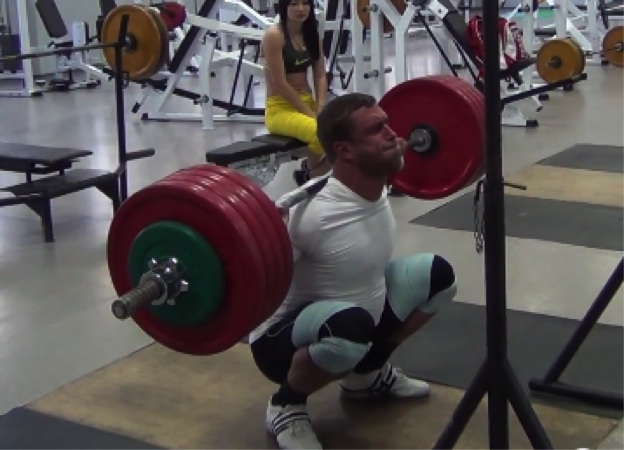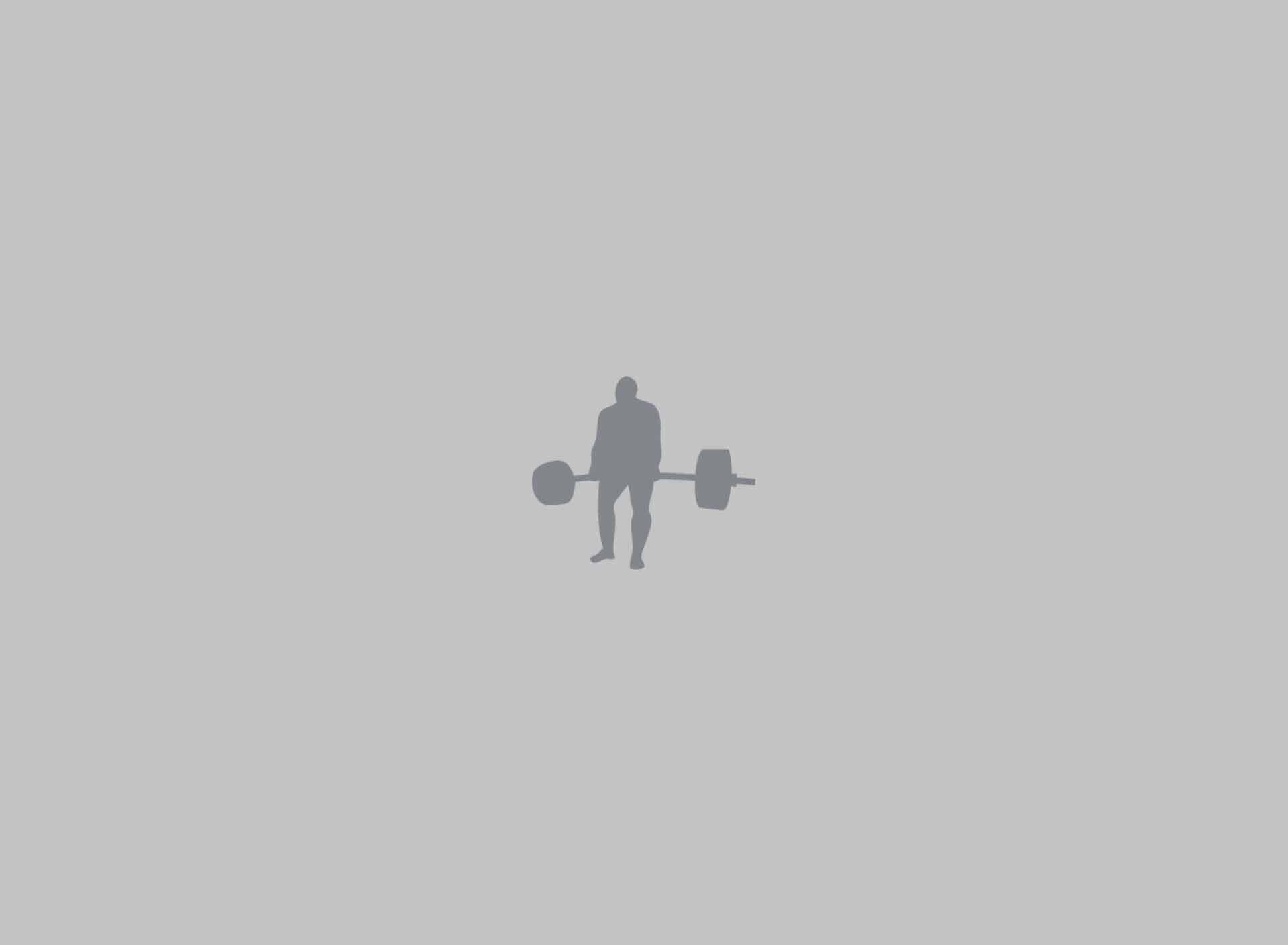Written by Team Juggernaut Greg Nuckols is an accomplished raw powerlifter, coach and author. Originally from North Carolina, Greg is finishing up his degree in Exercise Science at Harding University. With PRs of 755 (w/ wraps), 475 and 725 as a drug-free competing in the 242 weight class, Greg walks the walk and backs up his training with well researched science.
1. If you could go back and talk with the Greg Nuckols of 5 years ago, what would you tell him?
Oh lord. Lots of stuff.
You can’t out-train bad sleep. Regardless of your program or diet, everything you do will be more effective if you sleep more. Work toward the goal of never having to wake up to an alarm.
Failing to PR is much better than risking injury. Having a “hardcore” attitude about everything in the gym is incredibly counterproductive. It may be cool for a while, but eventually you’ll be the hardcore guy doing hardcore rehab exercises in the corner while everyone else is actually training.
Most programs aren’t “good” or “bad.” They’re either appropriate or inappropriate for a particular context or goal relative to your abilities at a given point in time. Learning HOW to program is much more useful that trying to find a good program.
Having one bad session doesn’t mean a program isn’t “working.” It means you had one bad day. If you have a string of bad days, though, don’t blindly stick to a program because it used to produce results. Continually optimize.
If you’re gaining more than a pound or two a week, your lifts will shoot up and you’ll think it’s because you’re gaining a ton of muscle. But you’ll wake up one day and realize that you’re a fat lard. If you are surprised, it’s because you’re an idiot.
Start learning how to read scientific studies now. Then learn how to separate relevant studies from irrelevant studies. Then start writing. You don’t realize how stupid you really are until you start writing. It’s easy to feel really confident about your grasp of a subject when it’s just floating around in your head, but then when you put it on paper and realize, “wait a second, there are holes in this argument that you could drive a tank through,” it becomes clear that you have a lot more reading to do.
You look better with a beard. You’ll stop shaving next year and it’ll be the best choice you ever made. Also, you don’t want to be a history major. You like training, and you like helping other people get strong, lean and awesome.
2. If I do cardio, will I lose all my gainz?
Nope. I learned this from my friend Alex Viada who just so happens to be an 800 raw squatter at 220 while running ultramarathons.
There was a research review a couple years ago showing that cardio didn’t impact strength or size gains very much all and that cycling actually didn’t cause any significant change in rate of progress. In fact, another study showed that strength and hypertrophy gains were actually greater when combining lifting and cycling vs. only lifting.
However, it is worth noting that these studies DID show a decrease in rate of force development (RFD). This means that for a weightlifter, cardio may not be the best choice, at least close to competition. In powerlifting, since you can grind a weight for 5+ seconds, it won’t be as big of a deal.
Also, this doesn’t mean that cardio needs to be avoided in the offseason by practically anyone. A bigger, stronger muscle has the potential to be a faster muscle. As you taper cardio leading up to a competition, you should realize those RFD gains that were suppressed in the short term by cardio. And if not, don’t tell the Chinese weightlifting team (who jog regularly), or else they’ll wreck the sport even more than they currently do.
If I can use my own experience as an anecdote, looking back over my old training logs, every time I’d have a period of steady progress, it almost always coincided with a fair amount of aerobic work. It wasn’t structured training, but I’d have enough free time to play some basketball for a couple hours a few times per week. When my schedule tightened up and I had to stop playing ball, I’d always have a month or two of rapid strength increases. “Ah hah! Basketball was holding me back!” I’d think. Not so. Pretty soon, I’d run headfirst into a plateau. Playing ball ensured I had a solid base of work capacity that I could build upon. When I’d stop playing, all that happened was a reduction in training volume that caused me to peak, but then it was difficult to make further progress with higher lifts but decreased work capacity.
If this subject interests you, I’d highly recommend you check out Alex’s stuff. I know the research, but I’m just getting back into aerobic training after neglecting it for far too long. He knows the application inside and out, though.
Check out Greg squatting 725+180# of Chains!!3. What is something that people who want to get strong are frequently doing that is wasting their time/energy?
Trying to emulate someone else’s training without taking context into consideration.
People see, “this guy’s strong, here’s how he trains, so if I train like that, I’ll get strong.” Well, probably not.
Most top lifters train for years to be able to lift the weights they do, sure. But also to handle the volume of work necessary to continue to improve on those lifts, it takes time to build the prerequisite work capacity. A lot of the time, people try these programs and get absolutely buried, and even if they manage to hold on, they could have spent their time more productively training with more appropriate methods.
On opposite ends of the spectrum, I don’t think twice about squatting or benching max weights on a daily basis. If you check out Andrey Belayev’s programming, he handles a level of volume that could cause rhabdo just from reading it. Both of those are absolutely viable ways to train, and plenty of people could handle super high intensity or super high volume programs over time. Jumping right in from a cookie cutter program where you’re hitting your main lifts once per week for 3 work sets is probably ill advised, though.
That’s why I think learning HOW to program is so important. It’s really the only way to make sure your training is appropriate to where you are at any given point in time, unless you have the opportunity to train with a good coach. And sure, you’re going to make some mistakes, but you’ll be better off in the long run.
4. Should I wear a belt when I squat?
That’s a bit of a loaded question. It depends on context, but in most cases, yes you should.
There’s honestly not a ton of research on this subject, but the evidence on short-term belt usage essentially shows that your core musculature is working just as hard with a belt as without one, and your legs actually work a little bit harder with a belt, even at the same weights, in spite of the fact that those weights would be more challenging without a belt.
Now, obviously there’s a need for some long-term studies. It could be that activation patterns change over time, or that there’s chronic training effects that aren’t immediately apparent from short-term evidence. So it wouldn’t be prudent to say that, for all cases and in all scenarios people should always wear a belt for squat. However, the current (albeit scant) evidence suggests that it IS better to squat with a belt.
5. Overtraining, is this something to be concerned about?
I’m not one of those guys who will go so far as to say that it’s impossible to overtrain. It’s certainly possible. However, in my experience, not many people train anywhere close to hard enough to worry about it, and most people are smart enough to pull back when the warning signs kick in – poor sleep, depressive symptoms, reduced sex drive, lack of appetite, lack of motivation, etc. To truly get to a state of overtraining, it requires you to override every natural urge and inclination your body has in place for self-preservation. Most people simply aren’t capable of pushing themselves to, and past, that point.
Just to make sure it doesn’t happen, there are some ways to monitor the stress you’re under and how well you’re recovering. Every morning when you wake up, take your HR and see how many times you can tap your finger on a solid surface in a minute. Track these numbers, establish a baseline over a week or average training, and then any time you see a swing of more than 10% or so, take a couple easy days until these numbers normalize. If you have a little cash, getting an HRV (heart rate variability) unit will also help you know the level of stress your body is coping with, and it’ll tell you a little more precisely.
Greg Nuckols is a strength coach and world-class drug free powerlifter. His best lifts include a 755 squat (raw w/ wraps), 475 bench, and 725 deadlift. His passion is for integrating in-the-trenches experience with the science that makes it all work. Website, Facebook, Twitter










